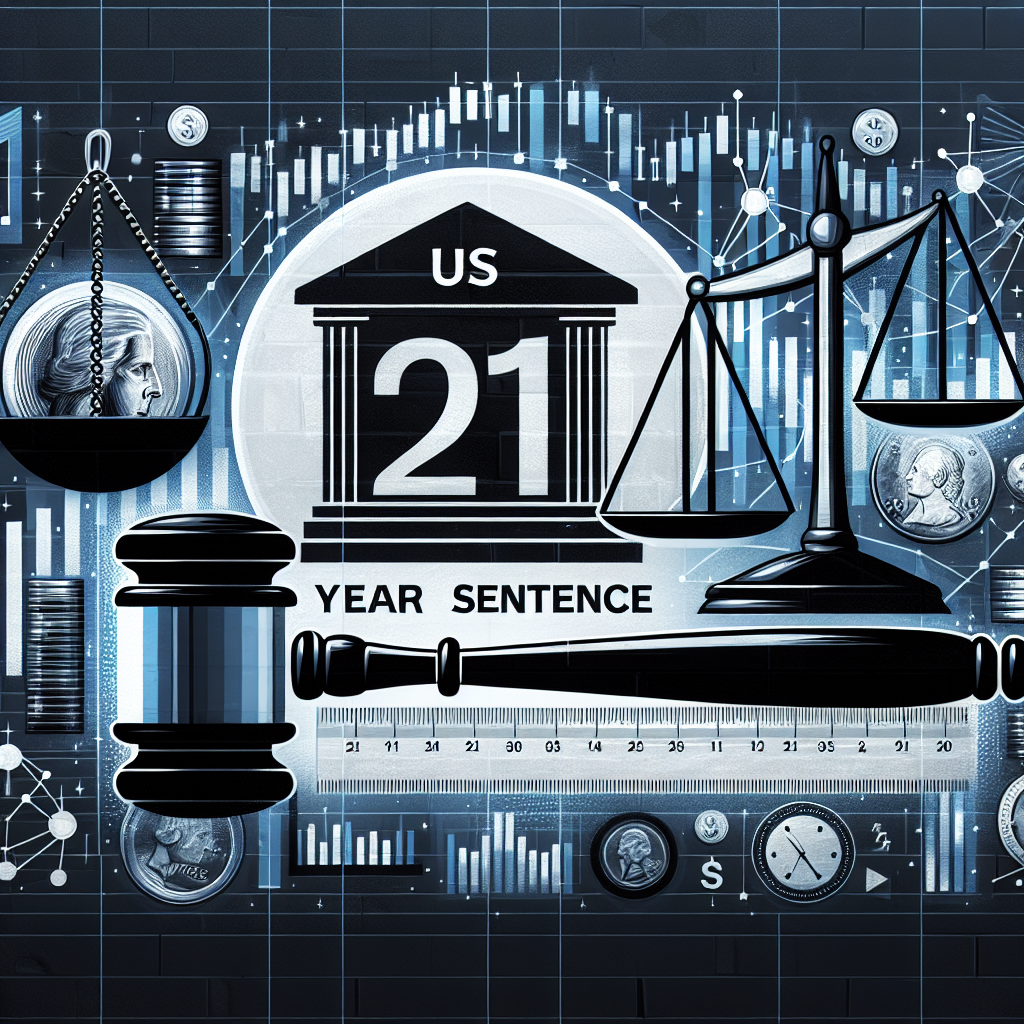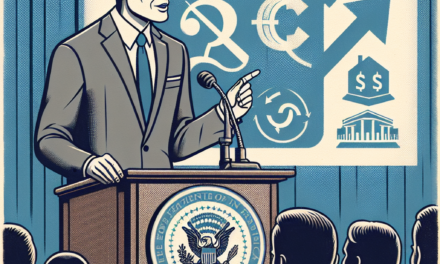“Justice Tightens the Reins: 21-Year Sentence Looms for Archegos’ Bill Hwang”
Introduction
In a significant development within the financial sector, U.S. prosecutors have recommended a 21-year prison sentence for Bill Hwang, the founder of Archegos Capital Management. This recommendation follows Hwang’s involvement in one of the most high-profile financial collapses in recent history, which resulted in substantial losses for major banks and highlighted systemic vulnerabilities in the financial markets. The proposed sentence underscores the severity of the charges against Hwang, which include fraud and market manipulation, and reflects the broader regulatory and legal efforts to hold individuals accountable for actions that undermine market integrity. The case has drawn widespread attention, not only for its financial implications but also for its potential impact on future regulatory measures and the enforcement of financial laws.
Legal Implications of Bill Hwang’s 21-Year Sentence Recommendation
In a significant development within the financial and legal sectors, the United States government has recommended a 21-year prison sentence for Bill Hwang, the founder of Archegos Capital Management. This recommendation comes in the wake of one of the most dramatic financial collapses in recent history, which sent shockwaves through global markets and raised critical questions about regulatory oversight and risk management in the financial industry. The proposed sentence underscores the gravity of the charges against Hwang, who is accused of orchestrating a scheme that led to billions of dollars in losses for banks and investors.
The collapse of Archegos Capital in March 2021 was a stark reminder of the potential risks associated with highly leveraged investment strategies. Hwang’s firm had amassed substantial positions in various companies using total return swaps, a type of derivative that allows investors to gain exposure to stock price movements without owning the underlying securities. This strategy, while potentially lucrative, also carries significant risk, particularly when combined with high levels of leverage. When the value of Archegos’ positions plummeted, the firm was unable to meet margin calls, triggering a massive sell-off that affected several major financial institutions.
The legal implications of this case are profound, as they highlight the challenges regulators face in monitoring complex financial instruments and the potential for systemic risk. The recommended 21-year sentence for Hwang reflects the seriousness with which the U.S. government views these issues. It serves as a warning to other financial executives about the consequences of engaging in risky or deceptive practices. Moreover, it raises important questions about the adequacy of existing regulatory frameworks and the need for reforms to prevent similar incidents in the future.
In addition to the legal ramifications, the Archegos debacle has prompted a broader discussion about the role of transparency and accountability in the financial industry. Critics argue that the lack of transparency surrounding total return swaps and other derivatives contributed to the scale of the losses and hindered regulators’ ability to assess the risks posed by Archegos’ activities. This case has reignited calls for greater disclosure requirements and more stringent oversight of complex financial products.
Furthermore, the situation has implications for the relationship between banks and their clients, particularly in terms of risk management and due diligence. The losses incurred by several major banks as a result of their dealings with Archegos have led to increased scrutiny of their risk management practices and the need for more robust internal controls. This has prompted some institutions to reevaluate their exposure to similar investment strategies and to implement more rigorous risk assessment procedures.
As the legal proceedings against Bill Hwang continue, the financial industry and regulators alike are closely watching the outcome. The case serves as a pivotal moment in the ongoing effort to balance innovation and risk in the financial markets. It underscores the importance of maintaining a regulatory environment that fosters transparency, accountability, and stability while allowing for the growth and development of new financial products and strategies.
In conclusion, the U.S. government’s recommendation of a 21-year sentence for Bill Hwang is a landmark moment in the intersection of finance and law. It highlights the need for continued vigilance and reform in the regulation of complex financial instruments and serves as a cautionary tale for those who might be tempted to prioritize profit over prudence. As the industry grapples with the lessons of the Archegos collapse, it is clear that the path forward will require a concerted effort from regulators, financial institutions, and policymakers to ensure a more resilient and transparent financial system.
The Rise and Fall of Archegos Capital Management
In a dramatic turn of events that has captivated the financial world, the United States government has recommended a 21-year prison sentence for Bill Hwang, the founder of Archegos Capital Management. This recommendation comes in the wake of one of the most spectacular collapses in recent financial history, a saga that has left a significant mark on Wall Street and beyond. To understand the gravity of this recommendation, it is essential to delve into the rise and fall of Archegos Capital Management, a story that serves as a cautionary tale about the perils of excessive leverage and lack of transparency in financial markets.
Archegos Capital Management, founded by Bill Hwang in 2013, was initially perceived as a low-profile family office. However, it quickly grew into a formidable force in the financial sector, managing billions of dollars in assets. Hwang, a former protégé of hedge fund titan Julian Robertson, employed a highly leveraged investment strategy that allowed Archegos to amass significant positions in various companies. This strategy, while lucrative in the short term, relied heavily on borrowed money, making it inherently risky.
The firm’s meteoric rise was fueled by Hwang’s ability to leverage his relationships with major banks, which extended vast amounts of credit to Archegos. This enabled the firm to take substantial positions in companies such as ViacomCBS, Discovery, and several Chinese technology firms. However, the lack of transparency surrounding Archegos’ operations meant that few outside the firm were aware of the extent of its market exposure. This opacity would later prove to be a critical factor in its downfall.
The unraveling of Archegos began in late March 2021, when a sudden decline in the stock prices of some of its major holdings triggered margin calls from its lenders. Unable to meet these demands, Archegos was forced to liquidate its positions, leading to a massive sell-off that wiped out billions of dollars in market value. The ripple effects of this collapse were felt across the financial sector, with several major banks, including Credit Suisse and Nomura, suffering significant losses.
In the aftermath of the collapse, regulatory scrutiny intensified, and investigations revealed the extent of the leverage and risk-taking that had characterized Archegos’ operations. The lack of regulatory oversight for family offices like Archegos was brought into sharp focus, prompting calls for increased transparency and stricter regulations to prevent similar incidents in the future.
The recommendation of a 21-year sentence for Bill Hwang underscores the severity of the situation and serves as a stark reminder of the consequences of unchecked risk-taking in financial markets. Prosecutors have argued that Hwang’s actions not only jeopardized the stability of the financial system but also eroded trust in the markets. They contend that such a sentence is necessary to deter similar behavior and to hold Hwang accountable for the fallout from Archegos’ collapse.
As the financial world grapples with the implications of this case, it is clear that the rise and fall of Archegos Capital Management will have lasting repercussions. The incident has sparked a broader conversation about the need for greater transparency and regulation in the financial sector, particularly concerning the activities of family offices and other non-traditional investment entities. Ultimately, the story of Archegos serves as a powerful reminder of the delicate balance between risk and reward in the world of finance, and the potential consequences when that balance is disrupted.
Understanding the Financial Impact of Archegos’ Collapse
The financial world was rocked by the collapse of Archegos Capital Management, a family office led by Bill Hwang, whose aggressive investment strategies led to one of the most significant financial implosions in recent history. The U.S. government has recommended a 21-year prison sentence for Hwang, underscoring the severity of the situation and the broader implications for the financial industry. To understand the financial impact of Archegos’ collapse, it is essential to examine the mechanisms that led to this downfall and the subsequent ripple effects across global markets.
Archegos Capital Management employed a highly leveraged investment strategy, utilizing total return swaps to amass substantial positions in various companies without having to disclose these holdings publicly. This approach allowed Archegos to exert significant influence over stock prices while remaining under the radar of regulatory bodies. However, this strategy also left the firm vulnerable to margin calls, which ultimately triggered its collapse. When the value of Archegos’ positions began to decline, banks demanded additional collateral that the firm could not provide, leading to a rapid unwinding of its positions.
The immediate financial impact of Archegos’ collapse was felt by several major banks, including Credit Suisse, Nomura, and Morgan Stanley, which collectively faced billions of dollars in losses. These institutions had extended credit to Archegos, and when the firm defaulted, they were forced to liquidate large blocks of stock, causing significant disruptions in the market. The sudden sell-off led to sharp declines in the share prices of companies in which Archegos had invested heavily, such as ViacomCBS and Discovery, further exacerbating the financial turmoil.
Beyond the direct financial losses, the collapse of Archegos raised critical questions about risk management practices within financial institutions. The incident highlighted the dangers of excessive leverage and the lack of transparency associated with derivative instruments like total return swaps. In response, regulatory bodies have intensified their scrutiny of family offices and the use of complex financial instruments, seeking to prevent similar occurrences in the future. This increased regulatory focus aims to enhance market stability and protect investors from the systemic risks posed by highly leveraged entities.
Moreover, the Archegos debacle has prompted banks to reevaluate their risk management frameworks and lending practices. Financial institutions are now more cautious in extending credit to clients with opaque investment strategies, emphasizing the need for greater transparency and due diligence. This shift in approach is expected to lead to more stringent lending standards and a reevaluation of the risk-reward calculus in dealing with high-net-worth clients and family offices.
In addition to these institutional changes, the recommended 21-year sentence for Bill Hwang serves as a stark reminder of the personal accountability that accompanies financial misconduct. The U.S. government’s stance reflects a broader commitment to upholding the integrity of financial markets and deterring future malfeasance. By holding individuals accountable for their actions, authorities aim to reinforce the importance of ethical conduct and responsible risk management in the financial sector.
In conclusion, the collapse of Archegos Capital Management has had far-reaching implications for the financial industry, prompting a reevaluation of risk management practices and regulatory oversight. The recommended sentence for Bill Hwang underscores the gravity of the situation and serves as a cautionary tale for investors and financial institutions alike. As the industry continues to grapple with the lessons learned from this debacle, the focus remains on fostering a more transparent and resilient financial system.
Lessons Learned from the Archegos Scandal

The recent recommendation by U.S. prosecutors for a 21-year sentence for Bill Hwang, the founder of Archegos Capital Management, serves as a stark reminder of the potential consequences of excessive risk-taking in the financial sector. This case has not only highlighted the vulnerabilities within the financial system but also underscored the importance of regulatory oversight and corporate governance. As we delve into the lessons learned from the Archegos scandal, it becomes evident that the repercussions extend far beyond the individual involved, affecting the broader financial landscape and prompting a reevaluation of risk management practices.
To begin with, the Archegos debacle has exposed significant gaps in the regulatory framework governing family offices and similar investment entities. Unlike hedge funds, family offices are not subject to the same level of scrutiny, allowing them to operate with a degree of opacity that can obscure the true extent of their market positions. This lack of transparency was a critical factor in the Archegos collapse, as the firm amassed highly leveraged positions without triggering regulatory alarms. Consequently, there is now a growing consensus among policymakers and financial experts that regulatory reforms are necessary to ensure that family offices are subject to more rigorous oversight, thereby preventing similar incidents in the future.
Moreover, the Archegos scandal has underscored the importance of robust risk management practices within financial institutions. The banks that extended credit to Archegos, including some of the world’s largest financial institutions, suffered significant losses when the firm’s positions unraveled. This has prompted a reevaluation of risk assessment protocols, particularly concerning counterparty risk and the use of derivatives. Financial institutions are now being urged to adopt more stringent due diligence processes and to enhance their stress-testing capabilities to better anticipate and mitigate potential risks. By doing so, they can safeguard their operations and protect their stakeholders from the fallout of unforeseen market events.
In addition to regulatory and risk management considerations, the Archegos case has also highlighted the critical role of corporate governance in maintaining the integrity of financial markets. The lack of effective oversight within Archegos allowed for the accumulation of excessive risk, ultimately leading to its downfall. This serves as a cautionary tale for other firms, emphasizing the need for strong governance structures that promote accountability and transparency. Boards of directors and senior management must be vigilant in their oversight responsibilities, ensuring that risk-taking is aligned with the firm’s strategic objectives and risk appetite.
Furthermore, the Archegos scandal has reignited discussions around the ethical responsibilities of financial market participants. The pursuit of profit should not come at the expense of market stability and integrity. As such, there is a growing call for a cultural shift within the financial industry, one that prioritizes ethical conduct and long-term value creation over short-term gains. This cultural transformation is essential to restoring public trust in financial markets and ensuring their resilience in the face of future challenges.
In conclusion, the recommended 21-year sentence for Bill Hwang serves as a powerful reminder of the far-reaching consequences of unchecked risk-taking and inadequate oversight. The lessons learned from the Archegos scandal are multifaceted, encompassing regulatory reform, risk management, corporate governance, and ethical considerations. As the financial industry reflects on these lessons, it is imperative that stakeholders work collaboratively to implement meaningful changes that enhance the stability and integrity of global financial markets. By doing so, they can help prevent similar crises in the future and foster a more resilient and trustworthy financial system.
The Role of Regulatory Bodies in Preventing Financial Misconduct
In recent developments, the United States has recommended a 21-year sentence for Bill Hwang, the founder of Archegos Capital Management, following his involvement in one of the most significant financial collapses in recent history. This case has brought to light the critical role that regulatory bodies play in preventing financial misconduct and ensuring the stability of financial markets. As we delve into the intricacies of this case, it becomes evident that the oversight and intervention of regulatory agencies are paramount in maintaining the integrity of the financial system.
The collapse of Archegos Capital Management in 2021 sent shockwaves through the financial world, resulting in billions of dollars in losses for major banks and investors. This incident underscored the potential risks associated with excessive leverage and lack of transparency in financial dealings. Consequently, it has prompted a reevaluation of the mechanisms in place to prevent such occurrences. Regulatory bodies, such as the Securities and Exchange Commission (SEC) and the Commodity Futures Trading Commission (CFTC), are tasked with the formidable responsibility of monitoring financial activities and enforcing compliance with established laws and regulations.
One of the primary functions of these regulatory bodies is to ensure that financial institutions adhere to prudent risk management practices. By setting and enforcing capital requirements, they aim to prevent excessive risk-taking that could jeopardize the stability of the financial system. In the case of Archegos, the use of complex financial instruments and high leverage levels went largely unchecked, highlighting a gap in regulatory oversight. This has led to calls for more stringent regulations and increased scrutiny of hedge funds and family offices, which often operate with less transparency than traditional financial institutions.
Moreover, regulatory bodies play a crucial role in promoting transparency and accountability within the financial markets. By mandating regular disclosures and reporting, they help to ensure that investors have access to accurate and timely information. This transparency is essential for maintaining investor confidence and preventing market manipulation. In the aftermath of the Archegos collapse, there has been a renewed emphasis on enhancing disclosure requirements for large investment entities, thereby reducing the likelihood of similar incidents in the future.
In addition to enforcing existing regulations, regulatory bodies are also responsible for adapting to the evolving financial landscape. As financial markets become increasingly complex and interconnected, regulators must remain vigilant and proactive in identifying emerging risks. This requires a continuous assessment of regulatory frameworks and the implementation of necessary reforms to address new challenges. The Archegos case serves as a stark reminder of the need for regulatory bodies to stay ahead of the curve and anticipate potential threats to financial stability.
Furthermore, collaboration between regulatory agencies, both domestically and internationally, is essential in preventing financial misconduct. Given the global nature of financial markets, coordinated efforts are necessary to address cross-border risks and ensure a level playing field for all market participants. By sharing information and best practices, regulatory bodies can enhance their ability to detect and respond to potential threats, thereby safeguarding the integrity of the financial system.
In conclusion, the recommended 21-year sentence for Bill Hwang highlights the severe consequences of financial misconduct and underscores the vital role of regulatory bodies in preventing such occurrences. Through diligent oversight, enforcement of regulations, and adaptation to changing market dynamics, these agencies play an indispensable role in maintaining the stability and integrity of financial markets. As the financial landscape continues to evolve, the importance of robust regulatory frameworks and effective oversight cannot be overstated.
Analyzing the Charges Against Bill Hwang
In a significant development within the financial sector, the United States government has recommended a 21-year prison sentence for Bill Hwang, the founder of Archegos Capital Management. This recommendation comes in the wake of a series of charges that have been levied against Hwang, which have sent ripples through the investment community. To understand the gravity of these charges, it is essential to delve into the specifics of the case and the implications it holds for the financial industry at large.
Bill Hwang, once a prominent figure in the investment world, found himself at the center of a financial storm when Archegos Capital Management collapsed in March 2021. The implosion of Archegos, a family office that managed Hwang’s personal wealth, resulted in significant losses for several major banks and highlighted the risks associated with highly leveraged trading strategies. The charges against Hwang primarily revolve around allegations of market manipulation and fraud, which prosecutors argue were instrumental in the dramatic rise and fall of Archegos.
The crux of the charges lies in Hwang’s alleged use of complex financial instruments known as total return swaps. These instruments allowed Archegos to amass substantial positions in various companies without having to disclose them publicly, thereby circumventing regulatory oversight. By leveraging these swaps, Hwang was able to exert considerable influence over the stock prices of certain companies, creating an artificial sense of demand and inflating their market value. This, in turn, misled investors and financial institutions about the true state of the market, leading to a precarious situation that ultimately unraveled with devastating consequences.
Moreover, the charges assert that Hwang engaged in deceptive practices to maintain the illusion of financial stability at Archegos. By allegedly providing false information to banks and other financial entities, Hwang was able to secure additional credit and continue his trading activities. This web of deceit not only endangered the financial institutions involved but also posed a broader threat to market integrity and investor confidence. The collapse of Archegos served as a stark reminder of the potential dangers posed by unchecked leverage and the need for robust regulatory frameworks to prevent similar occurrences in the future.
In recommending a 21-year sentence, the US government aims to underscore the seriousness of the charges and the broader implications for the financial industry. This recommendation is not merely a reflection of the alleged crimes committed by Hwang but also serves as a deterrent to others who might consider engaging in similar activities. The case against Hwang highlights the importance of transparency and accountability in financial markets, as well as the need for stringent oversight to protect investors and maintain market stability.
As the legal proceedings unfold, the financial community will be closely watching the outcome of this case. The charges against Bill Hwang and the recommended sentence serve as a cautionary tale for investors and financial institutions alike, emphasizing the need for vigilance and ethical conduct in an industry where the stakes are exceedingly high. Ultimately, the resolution of this case will have far-reaching implications, shaping the future of financial regulation and reinforcing the importance of trust and integrity in the world of finance.
The Future of Hedge Fund Regulations in the US
The recent recommendation by U.S. prosecutors for a 21-year sentence for Bill Hwang, the founder of Archegos Capital Management, has sent ripples through the financial industry, sparking discussions about the future of hedge fund regulations in the United States. This case, which has captured the attention of both regulators and market participants, underscores the complexities and potential risks associated with hedge fund operations. As the financial world grapples with the implications of this high-profile case, it is crucial to examine how it might influence regulatory frameworks and the broader hedge fund landscape.
Bill Hwang’s Archegos Capital Management became a household name following its spectacular collapse in March 2021, which resulted in significant losses for several major banks and highlighted the opaque nature of certain hedge fund activities. The firm’s use of total return swaps and other complex financial instruments allowed it to amass substantial positions in various companies without the need for public disclosure, ultimately leading to a highly leveraged and precarious financial situation. When the market turned against Archegos, the unwinding of these positions triggered a cascade of losses, estimated to be in the billions, for financial institutions that had extended credit to the firm.
In light of these events, the U.S. government’s recommendation for a lengthy prison sentence for Hwang is seen as a strong signal of its intent to hold individuals accountable for actions that pose systemic risks to the financial system. This move is likely to prompt a reevaluation of existing regulations governing hedge funds and their activities. Currently, hedge funds operate with a degree of flexibility that allows them to employ a wide range of investment strategies, often involving significant leverage and complex derivatives. However, the Archegos debacle has exposed vulnerabilities in the regulatory framework, particularly concerning transparency and risk management.
As regulators consider potential reforms, one area of focus is likely to be the enhancement of disclosure requirements for hedge funds. Increasing transparency around the positions and leverage employed by these entities could help mitigate the risk of similar incidents in the future. Additionally, there may be calls for stricter oversight of the relationships between hedge funds and their prime brokers, ensuring that financial institutions have a clearer understanding of the risks they are exposed to when extending credit to such entities.
Moreover, the Archegos case may serve as a catalyst for broader discussions about the role of leverage in the financial system. While leverage can amplify returns, it also magnifies risks, as evidenced by the rapid unraveling of Archegos’ positions. Regulators might explore the implementation of more stringent leverage limits or stress testing requirements for hedge funds, aimed at preventing excessive risk-taking that could have systemic implications.
In conclusion, the recommendation of a 21-year sentence for Bill Hwang is not just a legal matter but a pivotal moment that could shape the future of hedge fund regulations in the United States. As the financial industry reflects on the lessons from the Archegos collapse, there is an opportunity to strengthen the regulatory framework, enhancing transparency, oversight, and risk management practices. By doing so, regulators can help ensure that hedge funds continue to play a constructive role in the financial markets while safeguarding against the potential for systemic disruptions. As these discussions unfold, the balance between innovation and stability will remain a central theme in the ongoing evolution of hedge fund regulations.
Q&A
1. **Who is Bill Hwang?**
Bill Hwang is the founder of Archegos Capital Management, a family office that collapsed in 2021, leading to significant financial losses for several banks.
2. **What is Archegos Capital Management?**
Archegos Capital Management was a private investment firm that used leverage to make large bets on stocks, which ultimately led to its collapse.
3. **Why is Bill Hwang facing a 21-year sentence recommendation?**
Bill Hwang is facing a 21-year sentence recommendation due to charges related to fraud and market manipulation, which contributed to the collapse of Archegos and significant financial losses.
4. **What were the consequences of Archegos’ collapse?**
The collapse of Archegos resulted in billions of dollars in losses for major banks, including Credit Suisse, Nomura, and others, and raised concerns about the risks associated with leveraged trading.
5. **What legal charges is Bill Hwang facing?**
Bill Hwang is facing charges of fraud, market manipulation, and racketeering related to his management of Archegos Capital Management.
6. **How did Archegos use leverage in its investments?**
Archegos used leverage by borrowing money to increase its investment positions, which amplified both potential gains and losses.
7. **What impact did the Archegos collapse have on financial regulations?**
The collapse of Archegos prompted discussions about the need for increased transparency and regulation of family offices and the use of leverage in financial markets.
Conclusion
The U.S. recommendation of a 21-year sentence for Bill Hwang, the founder of Archegos Capital Management, underscores the severity with which regulatory authorities view the financial misconduct associated with the collapse of his firm. This case highlights the significant impact of leveraging and risky financial practices on market stability and investor confidence. The proposed sentence serves as a deterrent to similar behavior in the financial industry, emphasizing the importance of transparency, accountability, and adherence to regulatory standards to maintain the integrity of financial markets.




